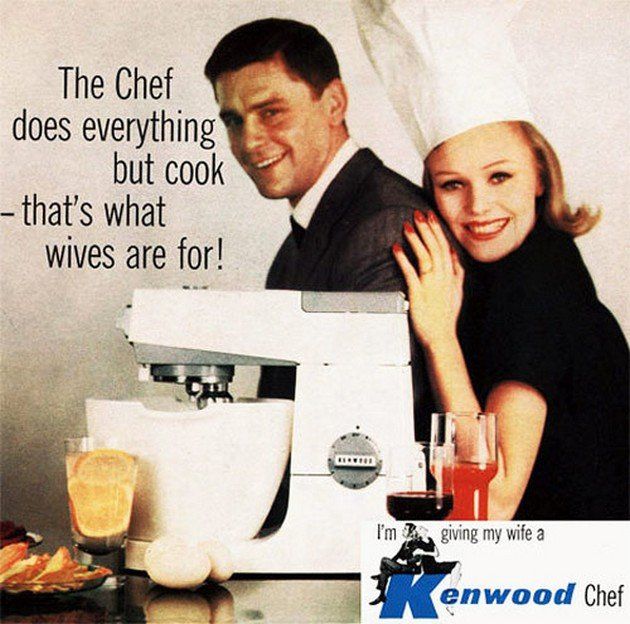These unbelievably sexist ads from decades past and present reveal both how far society has come and how much further we need to go.
As trite as it is straight , sexual urge sells . But sometimes — from ourMad Menpast to our Snapchat and smartphone - filled present tense — advertizer take this truism a piddling too far , and turn unblushing sexual practice into abject sexism . casing in point ? These sexist ads :
Stacked: a trait microwaves and attractive women apparently have in common
Women love appliances too, Home Depot promises
Hertz assures us their female attendants have brains
Men are better than women…
Are you losing your man?
Outrageous bigotry
Perverse sexualization from American Apparel
Promoting domestic abuse
The Chef does everything but cook – that’s what wives are for!
“It’s a man’s world”
Horrible patronizing courtesy of Schlitz beer
Built like a product
Is it always illegal to kill a woman?
Women are not pears, according to ad
Women love appliances
Who knew skin cream was so important?
Soap will make sure your husband comes home at night
What’s even happening here?
Anti-sexists hit back!
Another winner from American Apparel
Where women belong
Simple enough for a woman
The secret to finding a man
Women being helpless once more
Wartime propaganda
For more , delay out our other Post onvintage advertizing that are entirely offensiveandvintage Christmas advertizement .

“Stacked” women can’t resist Thermidor microwaves, or dickey-clad men.

In this relatively recent Canadian ad, Home Depot demonstrates the fact that not even time can kill sexism.

Hertz has come a long way in its advertising, but like a lot of older companies, they’ve got a bit of a sexist past in terms of advertising choices. For example: this promoting the fact that Hertz service women have brains as well as smiles.

… or so Drummond Sweaters would have us believe.P.S. Don’t miss the woman at the bottom of the frame for bonus sexist points.


*That’s the question posed in this 1950s ad.
And unless you buy their productyou very well might be losing yours.*

In this ad, we can see that women do all the work in the house. Of course, they don’t do so to keep the house clean, just to look cute for their husbands!

American Apparel has been in and out of the news over the last decade for a variety of scandals, including lawsuits against the CEO for sexual harassment, accusations of using underage models, and having ads regularly banned by advertising authorities.This ad, however, did see the light of day.For the record, that’s Lauren Phoenix, an adult entertainment actress.

Apparently, the creators of this ad never got the memo that domestic abuse is not something to make light of privately, let alone in mass publication.


Van Heusen, like many companies before it, would probably like us all to forget this ad.

This beer ad may very well be the very first example of mansplaining.

It’s not only consumer goods companies that use abject sexism to sell stuff. Here, a construction company compares construction equipment’s durability to that of a woman’s body.


This ad originally ran back in the day but sadly had a bit of a resurgence recently when an Egyptian gym company ran virtually the same ad earlier in 2016.

According to Kenwood, all women everywhere love appliances — and nothing but appliances.

Believe it or not, this ad linking smallpox with the inability to find a man is actually only sellinghand cream. Apparently, if you’re a woman and have hands that actually do stuff, no man is going to go for you.

Enough said, really.

It’s unclear whether this ad is selling rugs or slaves.

Finally, someone hits back! Sure, the billboard went up in the first place, but still. Progress!

There are no words.

This early 1940s ad has probably the least appealing copy of all items appearing here. Who wants to eat “sloppy and hastily prepared” food?

There’s a recurring theme in all these ads: machines are complicated, and women are too dumb to operate them.

Apparently, “even Plain Janes” can find a man so long as they have a pin.

In the battle of woman vs. bottle, the loser is…the sexist creator(s) of this ad.

WWII saw women entering male-dominated workplaces such as factories at an unprecedented rate. You might assume that this balanced the scales in the ad world a bit, but you’d be giving advertisers too much credit. As this ad makes clear, advertisers instead sought to sell to women at workandcontinue to be offensive.